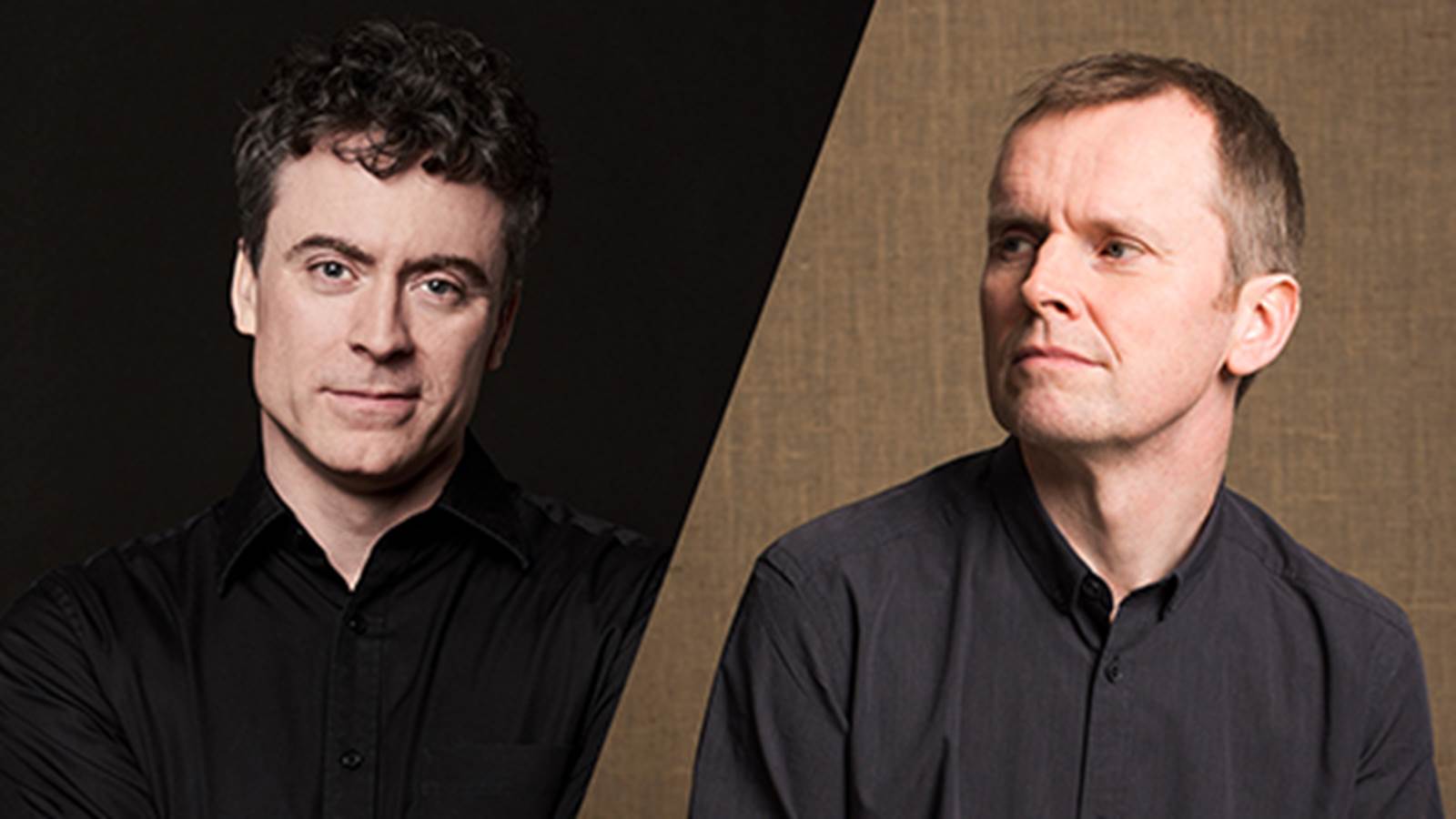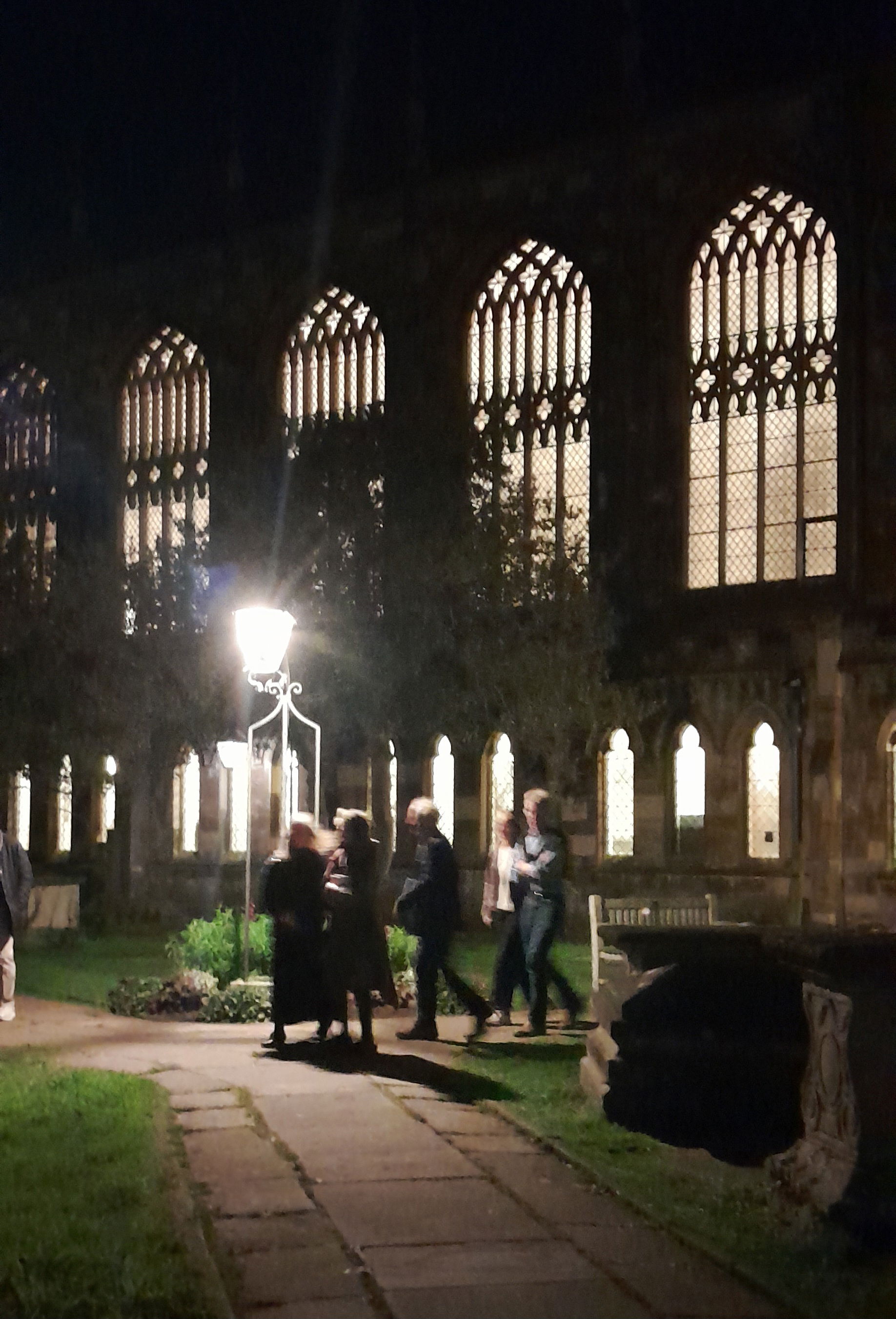Paul Lewis and Steven Osborne piano recital at Tetbury Music Festival.

The Tetbury Music Festival is one of the glories of the Cotswolds. Every year it gathers superb musicians to this most picturesque spot of Gloucestershire to give concerts of such a high standard that the BBC turns up to record them.
Paul Lewis and Steven Osborne have been performing piano duets and recording them for long enough to have a loyal following in that area. For those of us who know Lewis primarily as a leading exponent of the classical repertoire, this recital of mainly French music, with a splash of Stravinsky, was a revelation. The acoustics of St Mary's Church, Tetbury are as wonderful as its architecture. The duo created a whole world of musical voices on one piano and kept the audience enthralled with a kaleidoscope of sonorities.
Paul Lewis deserves all the more congratulations because earlier this year, he was injured by a car that nearly ran him over while he was walking across a supermarket car park. Fortunately for him, for us, and the world of music, he only had a minor fracture and survived to resume his career after only a few weeks.

The programme started with Fauré's Dolly Suite, whose gentle and beguiling Lullaby was familiar to a whole generation as the theme music to Listen With Mother. With its contrasting middle section, it is actually a nuanced and subtle piece -as is the whole suite, despite its title - and was played with a caressing touch (though at a fairly brisk speed). The whole Suite was delightful.
From the late-Romantic world of Fauré we were plunged into the frenetic, percussive opening of Poulenc's Sonata for Piano Duet, written in 1918. It is amazing that Poulenc wrote this when aged only nineteen. The 20th-century ferocity of the first theme, transporting us to a harsh world of mechanization and war, is contrasted with a more melodic second theme. The last movement was played with flamboyant virtuosity. The whole 3-movement piece is devilishly clever, neo-classical, and deserves to be heard more often.
The Debussy Six Epigraphes is Debussy at his most enigmatic, being "neo-classical" in his own inimitable way. The piano created mysterious sounds, floating images, with shadows, echoes and muffled footsteps. The audience in the church was spellbound.
In the second half, we heard Debussy's much more accessible Petite Suite, with its Impressionist pictures, such as En Bateau, where the rippling water effects truly sparkled, and Cortège with its mock-solemnity. The Minuet was truly dance-like and the final Ballet was energetic and joyous.
To move from these to Stravinsky's Trois Pièces Faciles was quite a contrast. Far from easy, these pieces are caustic and sardonic. They sound like musical satire, with complex poly-rhythms and chromaticism everywhere. The mock-march, the mock-polka and the mock-waltz were all performed with ruthless precision.
Finally we had Ravel's Mother Goose Suite, another composition whose nursery rhyme title belies the sophistication of the music. I'm not sure if it really helps to know the meaning of each title (derived from the fairy-tales of Charles Perrault). I think it is better to just experience the pieces as pure, abstract music. Nobody writes for the piano better than Ravel, and this performance did justice to the large scope of the music, creating luminous, seductive and sometimes exotic sounds (in the Empress of the Pagodas). This is not childish magic but an inner dreamscape of real wonderment, reaching its unforgettable dramatic climax in the last piece with its dazzling glissandi. The audience was rapt and hardly dared to breathe.
I love the way that compositions for piano duet are often described as being for "four hands", as if they could just as well be played by three or four different pianists who had at least one hand each, regardless of whether it were a right or left hand. (Or perhaps by one pianist with four hands?) Fitting three or four players at the keyboard or on even the largest piano stool at the same time might be difficult. Anyway Paul Lewis and Steven Osborne seemed to manage it with two hands each.
They were generous enough to play one of Brahms' Hungarian Dances as an encore.
This was a splendid and memorable concert. Tetbury is certainly very fortunate to have a Music Festival of this high standard and its deserves the warm support of all its loyal followers.
The Festival continues for a few more days.
https://www.tetburymusicfestival.org/2025-concerts
https://www.paullewispiano.co.uk/
https://www.stevenosborne.com/
https://www.classical-music.com/features/artists/who-is-paul-lewis
https://slippedisc.com/2025/01/exclusive-top-pianist-is-hit-by-a-car/
Programme
G Faure Dolly Suite
Francis Poulenc Sonata for Piano Duet
Debussy, Claude Six epigraphes antiques
---
Claude Debussy Petite suite
Igor Stravinsky Trois Pièces Faciles
Maurice Ravel Mother Goose Suite